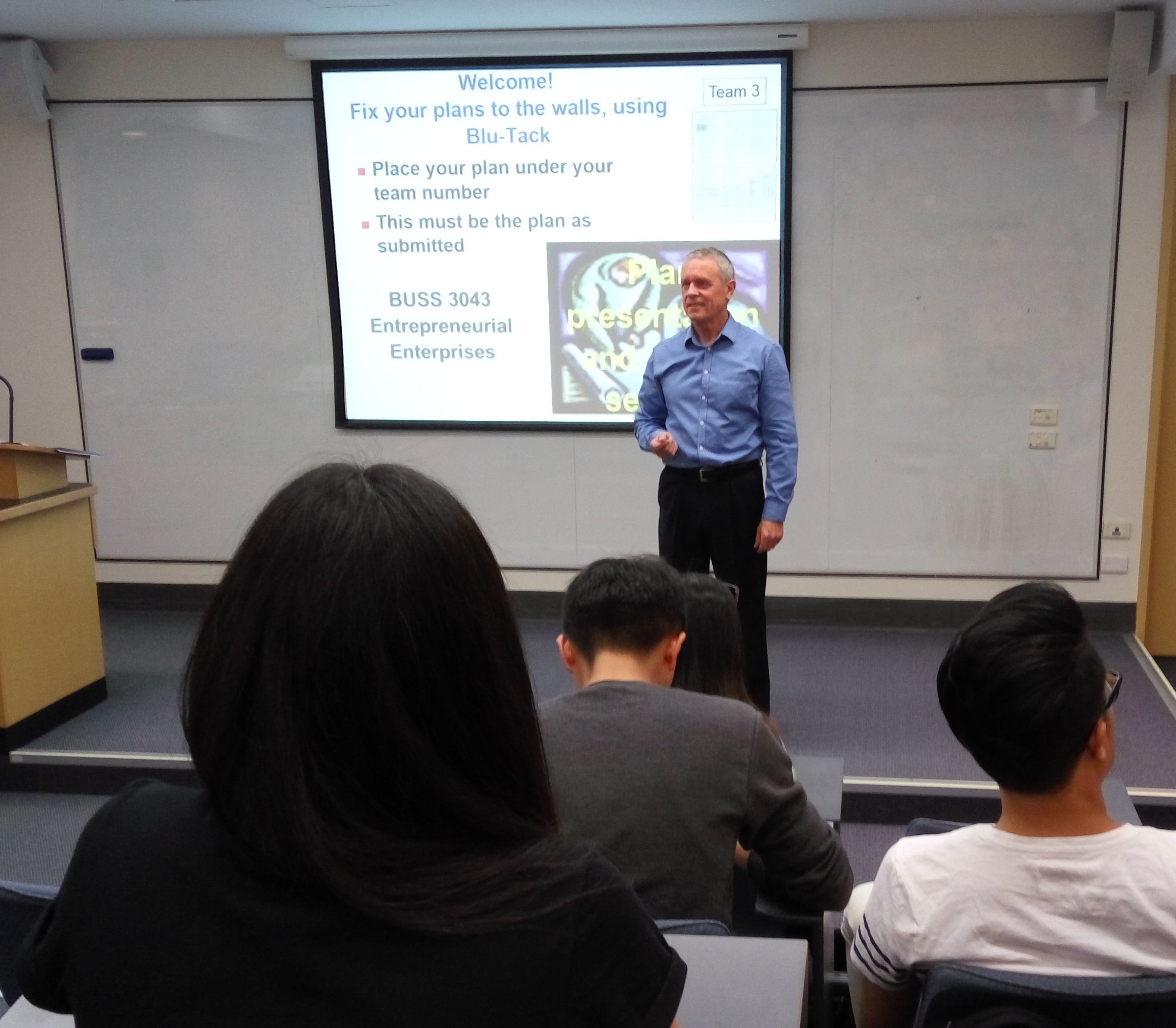Topic outline
-
Undergraduate entrepreneurship courses (6:16) What's special about UniSA undergraduate entrepreneurship courses?
Many special features of these courses deliver real practical benefits. The instructional approach is student centred and very interactive. There is very little or no lecturing, and sessions rely on students exploring topics in their teams and discussing them in the whole class. Materials are introduced and then discussed in real time, according to the particular topic and student area of interest. Courses address novel and current business challenges and have real practical relevance, while drawing on recent research into entrepreneurship, creativity and innovation.
What I try to achieve in these courses
What I would like is for each student to be inspired by the spirit of entrepreneurship and innovation, and in particular to become excited by what personal enterprise can mean in their own lives. I like to think that students completing these courses will want to take effective control over their lives by applying the principles of personal enterprise and entrepreneurship, whether it is in the for profit sector to make money, or the social enterprise not for profit sector to help our community, or simply in their day-to-day lives.
Innovations that support this aim
I systematically research students to understand their motivations and expectations, and use this information to continuously innovate and experiment with activities that will engage them with these courses. Many innovations in these courses are detailed on this website, and these include:
- The systematic implementation of Team-Based Learning as a teaching method that delivers good learning outcomes; in particular this method develops teamwork skills that is most important for entrepreneurship. (This was only the second implementation in the world of this well-established teaching method in the field of entrepreneurship)
- A single business idea for the whole class. This might be a new technology, or a new social enterprise challenge that becomes the theme for classroom discussions so that students learn from each other
- A feasibility plan (rather than the more complex business plan) as the major project report in the entrepreneurial foundation course. This makes the course more accessible for non-business students
- The presentation of project reports as posters, rather than as long documents. This allows the use of a "gallery walk" report presentation and review session that gives students immediate feedback on their major project work
- Sparkplus software for team contribution evaluation as a tool for improving team cooperation and performance
- Relevant application exercises as the basis for team and classroom discussion of course topics. This allows students to learn from each other as well as from the lecturer. Also means that the lecturer does not deliver formal lectures
- Online surveys to teach complex and challenging topics in these courses. Students complete the survey and each receives a personal benchmark report that is used in classroom discussion, as well as for personal development
- A special orientation session with seven activities founded in good education practice. This builds a very positive and dynamic learning culture in the classroom, and gets each course off to a good start.
In summary, I am passionate about my teaching. I enjoy helping students become engaged with their learning, and I have a great deal of pleasure in working with research teams in Australia and overseas exploring aspects of teaching. I keep increasing my understanding of teaching and I experiment to further develop my teaching methods. In addition, I maintain a high level of engagement with industry, government and the community that helps to ensure that my teaching is directly relevant to our changing world.
I aim to improve engagement and the learning experience in these classes to get students as excited about personal enterprise and entrepreneurship and innovation as I am.
What does "OAM" mean? Australia has a civil honours system (like the British). In 2016, the Governor general of Australia awarded me the Medal of the Order of Australia (OAM) "for service to tertiary education, and to the community of South Australia".
In 2016 I gained a prestigious national award for teaching excellence for "consistent innovation in entrepreneurship teaching".
I
- The systematic implementation of Team-Based Learning as a teaching method that delivers good learning outcomes; in particular this method develops teamwork skills that is most important for entrepreneurship. (This was only the second implementation in the world of this well-established teaching method in the field of entrepreneurship)

